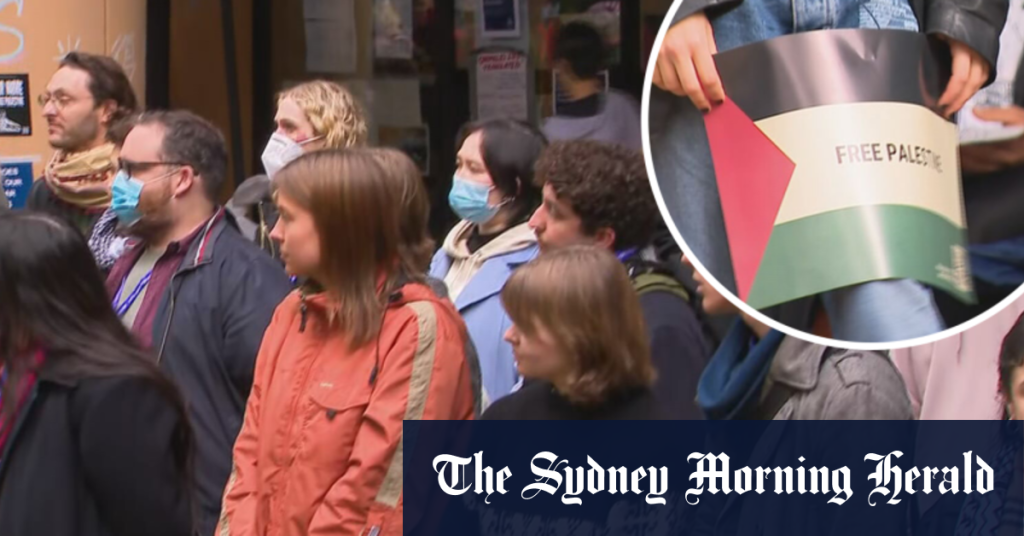In a recent video, it was reported that students protesting at the University of Melbourne have been told to “leave” the premises or face expulsion. The students involved in this protest were advocating for the Palestinian cause, with many of them being part of pro-Palestine groups on campus. The protesters were occupying a university building as part of their demonstration, but university officials issued them an ultimatum to vacate the premises or risk being expelled from the institution.
The protests at the University of Melbourne were centered around the students’ support for Palestine and their advocacy against the ongoing conflict in the region. The students organizing the protest were members of pro-Palestine groups on campus, and they were using their platform to raise awareness about the plight of Palestinians. By occupying a university building, they were able to draw attention to their cause and engage with the broader student body about the issue.
University officials responded to the protest by ordering the students to leave the premises immediately or face possible expulsion. This ultimatum put pressure on the protesters to comply with the university’s demands and raised questions about the boundaries of free speech and expression on campus. In issuing this warning, the university administration signaled its intolerance for protest actions that disrupt the normal functioning of the institution.
The decision to threaten the protesters with expulsion highlights the challenges that student activists face when advocating for controversial causes on campus. While universities are meant to be spaces for open dialogue and debate, there are limits to the extent to which protests can disrupt the academic environment. By taking a firm stance against the protesters, the University of Melbourne sent a clear message about its expectations for student behavior and the consequences of violating those expectations.
The students involved in the protest now face a difficult choice between continuing their demonstration and risking expulsion from the university. This ultimatum forces them to weigh the importance of their cause against the potential consequences of their actions. It also raises larger questions about the role of universities in accommodating diverse viewpoints and allowing for the peaceful expression of dissent.
Overall, the situation at the University of Melbourne underscores the complex dynamics at play when student activism collides with institutional regulations. The intersection of free speech, protest rights, and academic discipline creates a challenging environment for students seeking to make their voices heard on contentious issues. Moving forward, it remains to be seen how the university will handle similar protests and whether it will work to strike a balance between upholding academic standards and respecting students’ rights to engage in activism.


